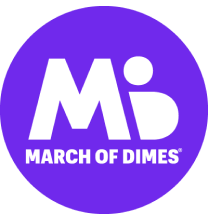Risk Factors & Chronic Disease
Pregnancy can change your health in unexpected ways. If you develop chronic conditions like high blood pressure and diabetes during your pregnancy, or are a mother with chronic health conditions you may need extra help from your doctor.
When to seek immediate help
If you're pregnant, contact your doctor right away if you have:
- Vaginal bleeding
- Watery vaginal discharge
- Pain or cramping in your abdomen or pelvis area
- Less fetal activity than usual
- Severe headaches
- Pain or burning when you urinate
- Changes in vision, including blurred vision
- Sudden or severe swelling in the face, hands or fingers
- Fever or chills
- Vomiting or frequent nausea
- Chest pain or shortness of breath
- Dizziness
- Weakness
- Extreme tiredness
- Nervousness or worrying that make it hard to do your daily activities
- Overwhelming feelings of sadness or sadness that lasts
- Thoughts of harming yourself or your baby
Some pregnancies are considered high-risk, which means you or your baby might be more likely to develop health problems before, during, or after delivery.

How do I know if I’m at risk?
Factors that determine a high-risk pregnancy can include:
- Existing chronic diseases
- Age (primarily women under 15 and over 40)
- Pregnancy with two or more babies
- Using substances like alcohol, tobacco, or other drugs
- Certain disorders of the placenta
- Abnormal genetic test or fetal ultrasound
- Preterm delivery in a prior pregnancy
How do I get help with risk factors?
Having one or more of these risk factors does not automatically mean you won’t have a healthy baby. However, you may need extra medical appointments or tests during your pregnancy. At those appointments, your healthcare team checks if you’re developing any health problems and treats them quickly if needed.
You may also need special tests before, during, and after pregnancy. Read more about maternal health testing.
Quick Guide
Chronic health conditions
A chronic health condition (also called chronic illness or chronic disease) lasts for one year or more; requires ongoing medical care; and can affect your usual activities and daily life. Many of the factors that determine a high-risk pregnancy can also lead to chronic health conditions.
Some examples of chronic health conditions include:
- Diabetes
- Depression
- Heart disease
- High blood pressure
- HIV
- Obesity
Chronic health conditions can increase your risk for:
- Trouble getting pregnant
- Premature birth
- Birth defects
- Pregnancy loss, like miscarriage and stillbirth
How should I work with my doctor?
Your health care providers can help you manage your condition for a healthy pregnancy and a healthy baby. Your prenatal care provider (like an OB-GYN) and the provider who treats your chronic condition (your regular doctor or specialist) should work together so everyone has the right information to give you the best care.
What about my medications?
Many mothers take medicines during pregnancy to control a chronic health condition. About seven in 10 women take at least one prescription medicine during pregnancy, but risks can exist. Work with your health care team to decide whether you should continue taking your current medication or switch to a different care option.
Where can I read more?

The March of Dimes has compiled a comprehensive guide to chronic health conditions and pregnancy. This page is a trusted source of information.
Which Chicago birthing hospitals specialize in chronic health conditions?
Additional Reading
Healthy Pregnancy
If you’re pregnant, get care right away and have regular visits throughout your pregnancy.
Prenatal Care 
For Teen Parents
If you are teen parent, it is likely that you have needs and worries that may not apply to new parents who are older.
Guidance for Teens Expecting a Child 
Caring for Yourself After Delivery
It takes time to recover — it's important to take care of you!
